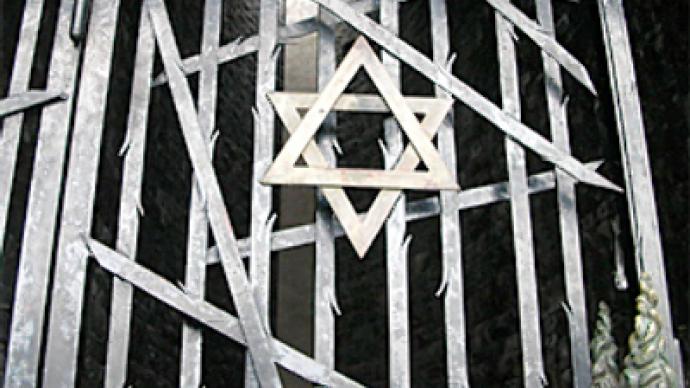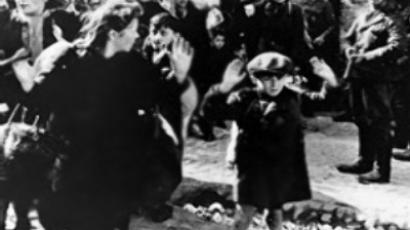The many faces of the Holocaust

The mass extermination of Jews by Nazi Germany is one of the cornerstones of the current world order. This ugly page of history is read with grief, penance and speculation.
Jews were not the first people in history who faced persecution and death solely for their ethnicity. There was the genocide of Armenians by the Ottoman Empire. The ill fate of the indigenous peoples of the Americas, Australia or Africa, who were decimated by European colonists, was no less grave in terms of loss of life and suffering either.
Neither were Jews the only group whom Nazi deemed unworthy to live. Roma people, Slavs, and even fellow Germans who were unlucky to have mental illness or be homosexual suffered from the regime obsessed with racial purity. And while Nazi war crimes were grave and many, the attention paid to them largely surpasses that to the atrocities of, say, Japan in the Asian countries that they conquered during World War II.
Still many scholars consider the Holocaust as a unique tragedy of the Jewish people, the Disaster.
It’s true that Nazi leadership treated Jews with special hatred and wanted them wiped out from the world. And they did much to reach their evil goal, slaughtering Jews in pogroms, summary executions and death marches, starving them and in ghettos, creating a whole industry that existed only to kill people. An estimated six million Jews fell victim to the Holocaust, with up to 90% of the population wiped out in some countries like Germany itself, Poland or the Baltic states.
What makes the persecution special is the involvement of the winners in the war in these atrocities. In many countries occupied by Germany there was widespread anti-Semitism and too many people became willing accomplices to the Nazi. For instance the Auschwitz death camp was run by German officers, but many of the guards were Ukrainians. Collaborators assisted in hunting down Jews in occupied territories. While many of those involved in the crimes were prosecuted after the war, the scale of involvement was too large to simply dismiss it.
Many more people didn’t take active part in the Holocaust, but had good reasons to feel guilty for taking conformist stance and turning a blind eye on the crimes. When the true scale of the tragedy meticulously documented by Germans was revealed, it couldn’t help but leave a mental scar on millions of Europeans who lived under Nazi rule. Moreover, unlike the East, Western Europe didn’t witness many of the horrors of the war and was not prepared for this injection of the ugly reality.
The sense of guilt was one of the reasons why for so many nations the Holocaust became not just a war crime, but the war crime: the ultimate evil that history has ever borne witness to. The support that the idea of a Jewish state in Palestine had from Europe, despite the resistance from the Arab world, can be seen as an act of penance. Denying the Holocaust is a crime in Israel and in 12 European countries, including Germany, Austria and Romania* – countries that were among the perpetrators. It’s no wonder that some people see it all as a Zionist conspiracy and claim the Holocaust is a hoax.
Perhaps in several generations the acute memory of the Holocaust will weather. Even now some politicians challenge Jews’ monopoly for the term while pursuing their agendas, like Hamas political leader in Damascus Khaled Mashal, who labelled Israel’s resent offensive in Gaza Strip a holocaust of Palestinians, or President Yushchenko who referred to the Holodomor – the mass famine in the 1930s that he claims was orchestrated by Stalin – as Ukraine’s Holocaust.
On January 27 the world remembers the victims of the Holocaust. On this day in 1945, Soviet troops liberated the remaining 7,500 prisoners of the Auschwitz-Birkenau death camp. The retreating SS troops were ordered to execute the prisoners, but it was never carried out.
Alexandre Antonov, RT
*RT has changed this passage as its first variant may have led readers to believe that Poland was among countries perpetrating in the Holocaust, which is certainly not true. The intented message was Poland has strict laws against the Holocaust denial. The ambiguous passage was a result of an editorial mistake by RT, for which we sincerely apologise.
The following is the translation of the letter sent from the Polish Embassy in Moscow in regards to the matter:
THE EMBASSY
OF THE REPUBLIC OF POLAND
IN MOSCOW
Moscow, January 30, 2009
To Margarita Simonyan,
Editor in Chief,
Russia Today TV
As an article entitled The Many Faces of the Holocaust, which alleges that Poland was among those responsible for the Holocaust (“Denying the Holocaust is a crime in Israel and 12 European countries, including Germany, Austria, Romania and Poland—countries that were among the perpetrators.”), was published on the Internet at the Web site of the Russia Today television channel (http://www.russiatoday.com.features/news/36476), the Embassy of the Republic of Poland to the Russian Federation protests against including Poland in the list of countries responsible for the crimes Nazis committed during the Second World War. Poland was one of many countries occupied by the Third Reich but never collaborated with the Nazis. In Poland, unlike many other occupied countries, those aiding and hiding Jews were in danger of being executed along with their entire families or villages. Nonetheless, many Poles did a lot to help ethnic Jews. The fact that Poles are the most numerous national group (6,066 people) among those awarded the Righteous among the Nations medal (the highest award for civilians in Israel) is only one indication of how much Poles contributed to protecting Jews against the Nazis’ criminal acts. Also, there was Å»egota, the Council to Aid Jews, an underground organisation. It may be viewed as a branch of the underground Polish government. This was a unique situation; no other country in Europe had a similar organisation. Å»egota was established in 1941 by leading groups in the underground Polish parliament. In Warsaw alone, the so-called ‘children’s section of Å»egota’ headed by Irena Sendler saved 2,500 Jewish children.
The statement included in the material published on Russia Today’s Web site can be interpreted only as an attempt to falsify facts, and the author’s being unfamiliar with the facts can by no means excuse him. The Embassy of the Republic of Poland emphasises particularly that publishing such false information does not help create an atmosphere of harmony between our nations. It is very surprising and disappointing that while people almost around the world are familiar with materials published and disseminated by Russia Today, the channel presumes to misinform public opinion.
Due to this situation and according to Article 43 of the Russian Media Act, the Embassy of the Republic of Poland demands that false information be retracted.
Sincerely,
Mariusz Dzewosewski,
Councillor













